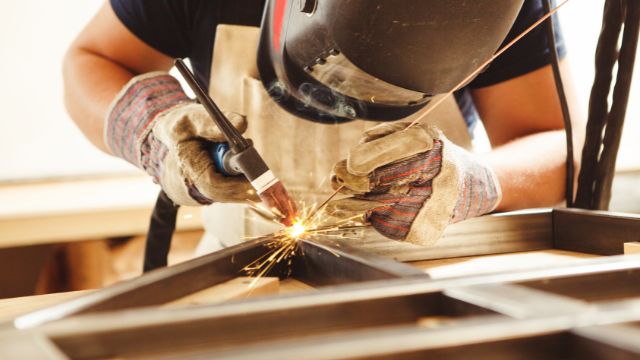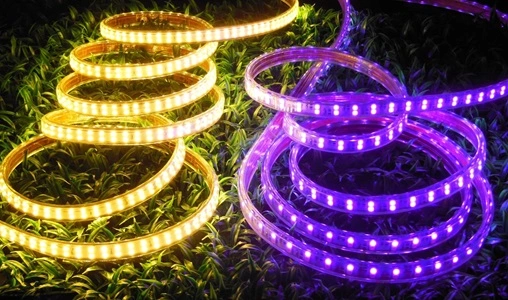Arc welding is an incredibly useful fabrication technique that has helped create everything from complex machines to towering skyscrapers. But like anything else, it has its own set of pros and cons. And if you’re a professional or just a hobbyist, it’s crucial to know these ins and outs to get the most out of your welding adventures. That’s the reason why today we are going to dive deep into the world of arc welding, uncovering its good and not-so-good sides, to give you a well-rounded perspective on the whole process. So let’s dive straight into it then.
Advantages of Arc Welding
Before starting we want to clarify that without a doubt, the pros of arc welding outweigh its cons, and that’s the reason why it is so popularly used welding technique. Now, let’s see what exactly are arc welding’s advantages.
1. High Welding Speed
One of the most impressive perks of arc welding is its lightning-fast welding speed. It’s a game-changer for high production rates and big old projects where efficiency and time management are the names of the game. A quicker welding process means more productivity, and who doesn’t love saving time and money in the long run?
2. Versatility
Arc welding’s versatility is another jaw-dropping advantage. It’s like a pro at work that can handle just about any material you throw at it, including steel, aluminum, and cast iron. This means it’s an adaptable method for joining different materials, making it a one-stop shop for all your welding needs. This flexibility lets professionals tackle various welding requirements with a single technique, streamlining the whole process and making life a little easier.
3. Deep Penetration
The intense heat and power of the electric arc in arc welding lead to deep, sturdy welds that really pack a punch. These welds offer greater strength and durability in applications where load-bearing capacity and longevity are super important. In specific industries, like construction and heavy machinery, this deep penetration can be a massive advantage, like having a secret weapon up your sleeve.
4. Economical
Arc welding is pretty wallet-friendly compared to other welding processes, requiring fewer raw materials and consumables. This cost-effective nature makes it an enticing option for both big-time organizations and individual welders, helping everyone keep their project budgets under control.
5. Portability
Arc welding equipment is portable and can be easily lugged around to different locations. This mobility makes it perfect for use in various settings, from on-site construction projects to remote maintenance work in the middle of nowhere. It provides flexibility for welders to perform their tasks efficiently, no matter where they find themselves. So, whether you’re welding atop a skyscraper or fixing a bridge, arc welding has got your back.
Disadvantages of Arc Welding
Now it is time we dive into the not-so-good aspects of arc welding, and here are the most prominent ones:
1. Potential Health Hazards
Let’s be real here, arc welding can be a bit of a double-edged sword when it comes to our health. While it’s amazingly useful, it also produces some not-so-friendly fumes and radiation that can be harmful to welders. So, it’s crucial to gear up with the right protective equipment like welding helmets, gloves, and respirators to keep yourself out of harm’s way.
2. High Initial Cost
Even though arc welding is generally budget-friendly in the long run, the initial cost of getting your hands on the equipment, especially for specialized processes, can for sure put a dent in your wallet. This might be a hurdle for some folks or organizations when they’re just starting out or looking to grow their welding game.
3. Requires Skilled Labor
Arc welding isn’t just a walk in the park, you need a certain level of skill and training to do it right and stay safe while you’re at it. This means that companies might have to invest some dough in hiring or training expert welders, adding a bit more to the overall project expenses.
4. Limited Suitability for Certain Materials
Sadly, arc welding isn’t a one-size-fits-all solution for all materials. Some materials, like those that are brittle or prone to cracking, or super thin ones that might end up warping from the heat, just aren’t the best candidates for arc welding.
5. Limited Accessibility
Arc welding gear and facilities might not be easy to find or available to everyone, especially if you’re living in a remote or underprivileged area. This lack of access can make things tricky for those who want to get into arc welding but just can’t get their hands on the necessary resources, equipment, or training opportunities.
Conclusion
All in all, getting a solid grasp on the ups and downs of arc welding is key to making the most of it in any welding project. With tech constantly changing, it’s super important for pros and enthusiasts to keep up-to-date and roll with the shifts in welding methods. That way, they can stay ahead of the game and keep on creating amazing stuff.


